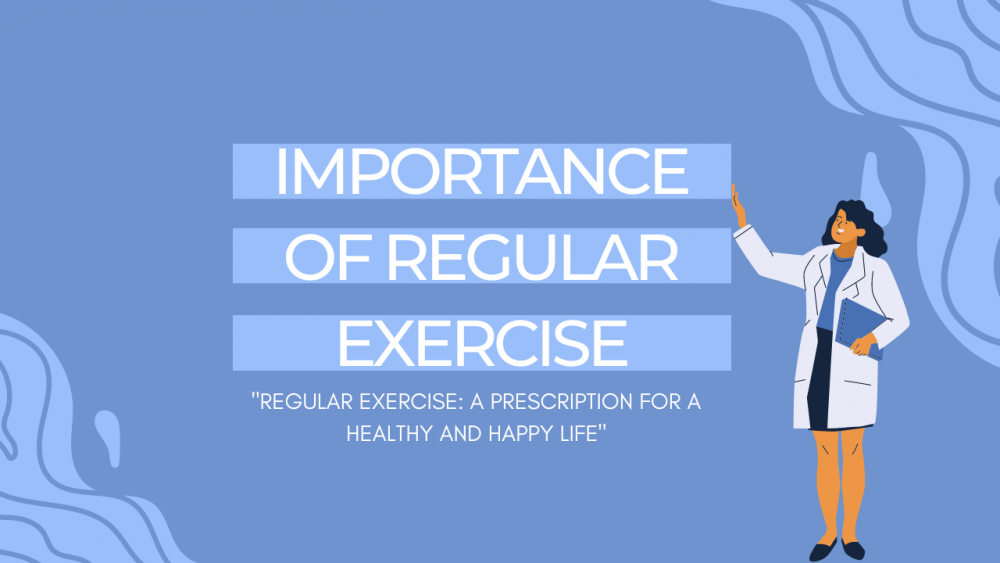

Regular exercise is essential for maintaining good health and well-being. It has numerous benefits for both physical and mental health and can help to improve the overall quality of life. In this blog post, we will discuss some of the most significant benefits of regular exercise, and why it is important to make it a part of your daily routine.
First and foremost, regular exercise is crucial for maintaining cardiovascular health. It helps to lower blood pressure, improve circulation, and decrease the risk of heart disease. Exercise also increases the efficiency of the heart and lungs, making them stronger and more capable of handling physical activity. This can lead to better overall cardiovascular fitness and a lower risk of heart attack or stroke.
In addition to cardiovascular health, regular exercise is also beneficial for maintaining muscle strength and flexibility. As we age, our muscles naturally lose mass and strength, making us more susceptible to injury and disability. Regular exercise helps to slow this process, and can even reverse it in some cases. Strength training exercises, such as weightlifting, can help to increase muscle mass and improve overall strength while stretching exercises can improve flexibility and reduce the risk of injury.
Another Importance of Regular Exercise is that it can help to prevent chronic diseases such as obesity, diabetes, and cancer. Exercise can help to control weight by burning calories and increasing muscle mass. This can lead to weight loss and maintenance of a healthy weight, which can reduce the risk of obesity-related diseases. Exercise can also improve insulin sensitivity, which can prevent or delay the onset of diabetes. Studies have also shown that regular physical activity can reduce the risk of certain types of cancer, such as colon and breast cancer.

Regular exercise also has a positive impact on mental health. It can reduce stress, anxiety, and depression by releasing endorphins, which are chemicals in the brain that act as natural painkillers and mood elevators.
Exercise can also improve sleep, which can enhance overall mood and cognitive function. Additionally, regular exercise can improve self-esteem and confidence, which can translate into better relationships and a more positive outlook on life.
Exercise also has a positive impact on cognitive function, it can help to improve brain function and cognitive abilities, such as memory and attention. Studies have shown that regular physical activity can help to increase the size of the hippocampus, a region of the brain that is responsible for memory and learning. Regular exercise can also improve the blood flow to the brain, which can enhance cognitive function and reduce the risk of age-related cognitive decline.
Lastly, regular exercise is important for overall well-being. It can improve energy levels, reduce fatigue, and increase overall quality of life. Exercise can also be a fun and enjoyable way to spend time, and can be a great way to meet new people and socialize.
It is recommended to get 150 minutes of moderate-intensity aerobic activity or 75 minutes of vigorous-intensity aerobic activity a week, or a combination of both, preferably spread throughout the week. And it is also recommended to add moderate or high-intensity muscle-strengthening activity (such as resistance or weights) on at least 2 days a week.
In conclusion, Importance of Regular Exercise is essential for maintaining good health and well-being. It has numerous benefits for both physical and mental health, and can help to improve overall quality of life. Whether you are trying to lose weight, improve cardiovascular health, or simply feel better, regular exercise can help you achieve your goals. So make exercise a part of your daily routine, and start reaping the benefits today.